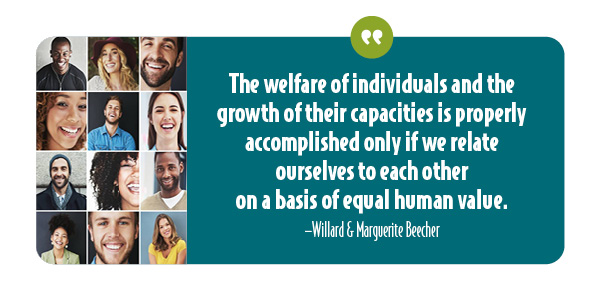When I was a young adult if someone had told me what a HUGE difference healthy boundaries would make in my life and for my happiness, it would have changed everything. Unfortunately, I learned the hard way: overgiving, pleasing others, being overwhelmed, exhausted, and depressed with never enough time for what truly mattered to me.
Estimated reading time: 4.5 minutes
 Healthy boundaries are essential to well-being. They are critical for healthy relationships and wholesome living. Without them, relationships can end in disaster, people lose themselves in habitual people-pleasing, and lives are often reduced to being on duty for others with no time or energy left for fulfilling our own goals and dreams.
Healthy boundaries are essential to well-being. They are critical for healthy relationships and wholesome living. Without them, relationships can end in disaster, people lose themselves in habitual people-pleasing, and lives are often reduced to being on duty for others with no time or energy left for fulfilling our own goals and dreams.
7 Reasons Why Setting Healthy Boundaries Helps Us Create a Happier Life
Let’s explore some of the most potent benefits of boundary development. Here are seven reasons why setting healthy boundaries is so critical.
Healthy boundaries help us to:

Perhaps, one of the most vital reasons to set boundaries is to be safe—emotionally, mentally, and physically. The best way to be safe and secure is through self-care and letting others know what we need to feel secure. No one deserves mistreatment or disrespect, yet, it’s our responsibility to let others know what is okay and not okay. Whatever we allow will continue.

Boundary development defines who we are: what we like and don’t like; what is enjoyable to us and what is not; what we espouse as values, and what is deemed insignificant to us. When we don’t define our personal boundaries, it can be difficult to differentiate our own needs from those of others. This blur can lead to feeling taken advantage of or resentful toward others. Only we know what’s right for us. Other people are not mind readers.
Related reading: "Create a Healthy, Happy Life with Effective Boundaries."

When we don’t know how to say no to others, it’s easy to become overwhelmed with too much on our plate and deprive ourselves of self-care. Overdoing without consideration of our needs depletes our resources. People who don’t set healthy boundaries may feel exhausted because they’re unable to prioritize their own needs when confronted with what others want and need. This silent compliance can lead to exhaustion, burnout, and sickness.
Related reading: “Create a Healthy and Happy Life with Effective Boundaries”

Every time we consider ourselves and advocate for our needs, these actions help us become more confident and grow self-respect. We feel like we matter and have an equal right to happiness.
However, when we don’t know how (or are afraid) to set boundaries, it creates an environment that encourages being taken advantage of, disrespected, or disregarded. Compliance or people-pleasing often leads to resentment and can deflate self-esteem. Why? Because a person who surrenders their internal authority to others by not speaking up for themselves relinquishes the quality of experience to whoever is calling the shots. Often, people-pleasers do not hold themselves responsible for their outcomes since they allow others to orchestrate the priorities and decisions.

For instance, you’re going out to eat and there is a discussion among friends about where to dine. If a person is gluten intolerant and agrees to eat at a restaurant with no gluten-free options, they’ve essentially let the other people decide for them.
Whether they do it to please, avoid criticism, or be liked, that self-sacrifice eats away at self-respect. Then, if they eat a meal with gluten and have a stomachache through the night, who’s responsible? It can feel like others don’t care about them, even though not speaking up for their own well-being is the real problem. No one can consider our needs without us communicating them!
So boundaries can be as simple as saying, “Hey, could we eat somewhere that has a couple of gluten-free options?”
Related reading: "Why You Should Stop Being a People Pleaser."

Without self-management, we fail to prioritize what’s important to us. A common habit with someone who doesn’t manage themselves is procrastination. Regulating ourselves and managing our energy and time are imperative to building a life we love.
The emotional intelligence skill of setting boundaries can be an internal regulator, such as choosing not to eat that second piece of silk pie calling from the kitchen or regulating our emotions and modulating our emotional expression and behavior.

For example, if you feel intense anger boil up, you take some space to self-calm rather than snap at your teenage daughter, co-worker, or partner.
It also means setting a boundary if someone interrupts you at work repeatedly. And this simple act of taking care of ourselves is exercised continually at home, too. For instance, your spouse wants to go out for a drink with friends, but you are heading out the door for a run. Instead of giving up your run, you meet them there after you run and shower.

When we don’t speak up for ourselves or what we believe and value, others, often unknowingly, ignore our needs altogether. When we don’t set solid boundaries or learn that we have a right to safety, respect, and well-being, this complicity can lead to putting ourselves in unsafe situations.
When healthy boundaries are not established, it can take a toll on our lives. A person with poor limit-setting may struggle with codependency in relationships, addictive behavior, poor diet, or a lack of exercise. Parenting is more challenging, too!
Parents who don't like to disappoint might give in to a toddler's tantrums or not know how to respond to teen rebellion. Even once children are grown, relationships can be strained, and parents may have difficulty setting boundaries with adult children or struggle to know how to handle grown children's disrespect. Or the challenge can be reversed: children cutting off contact with their parents because of emotional immaturity causing disappointment and drama in their lives.

Relational boundaries set limits for other people’s behavior and promote equity in a relationship. Without effective boundaries, it can be challenging to navigate the power dynamics in relationships. If a relationship feels lopsided, it probably is. Perhaps, it’s time to express your feelings and identify your needs more clearly. The quality of every relationship is largely up to you; your self-care and response to others’ behavior will significantly impact outcomes.
As Dr. David Richo, Ph.D. states in his book How to Be an Adult: A Handbook on Psychological and Spiritual Integration:
"Boundaries are what make it possible for us to have closeness while we still safely maintain a personal identity. To give up personal boundaries would mean abandoning ourselves! No relationship can thrive when one or both partners have forsaken the inner unique core of their own separate identity. Love happens when two liberties embrace, salute, and foster one another."
Fortunately, there are ways to set healthy boundaries successfully. It is essential to be clear and honest with yourself as well as others about what you need and expect from them. Being firm yet respectful in asserting your boundaries and communicating them to others is also pivotal.

If Boundaries Are So Important, Why Don't People Set Them?
Sometimes, people don’t set healthy boundaries because they fear how their decisions might be perceived or judged by others. Other reasons include wanting to be liked or not wanting to be rejected. People pleasers in particular often have difficulty setting healthy boundaries because they place the needs of others over their own and are usually conflict-avoidant. And many times, people simply lack the skill to set boundaries.
It can be helpful to remember that healthy boundaries are about taking care of yourself, not pushing others away and alienating them. Living a full life requires each person to choose what’s right for them. Building thriving families and communities asks us all to cooperate from a solid sense of self, developing our potential to contribute our gifts for the greater good.
Healthy boundaries are essential in all areas of our lives, from personal relationships to professional ones. Our well-being depends on them! They can bring many benefits to our lives. When well-developed boundaries are established, we have more clarity in our relationships, increased self-respect, improved self-confidence, and we are shielded from unhealthy habits and behaviors.
Happy boundary setting. :)
To learn greater emotional intelligence and get support, email us at support@heartmanity.com. If you enjoyed this blog, don't miss out! Sign up for our newsletter.










